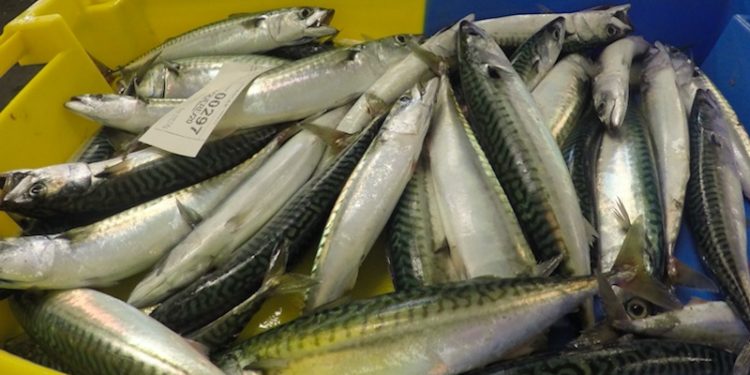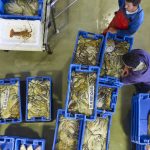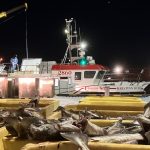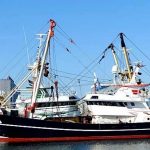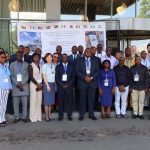After five previous rounds of negotiation, the EU, Norway and the Faroe Islands have agreed on a division of mackerel quotas for 2019, with a 20% reduction in catches compared to the 2018 level. Previous negotiations also included Russia, Iceland and Greenland, but no agreement was reached on the quota split between individual states.
The 653,438 tonne quota is split with 322,077 tonnes allocated to the EU, 147,085 tonnes for Norway and 82,339 tonnes to the Faroe Islands. The three coastal states have agreed on a share equivalent to 15.60% of the total to other states fishing mackerel in international waters. The share agreement is valid for two years and was signed on the EU’s behalf by Fabrizio Donatella, by Ann Kristin Westberg for Norway and Herluf Sigvaldsson for the Faroe Islands.
Considering the initial ICES recommendation for a 61% cut in the fishery, the coastal states have requested that ICES carry out additional examination of the methodology behind the estimation of the mackerel stock during the first quarter of 2019. The parties have indicated that they will meet during the first half of next year to discuss the outcome of this work.
The parties are still building mackerel management on the new management strategy that was adopted last year’s negotiations. The three coastal states agree to extend the 2014 Framework Agreement on the allocation of the total quota between coastal states. The framework agreement will now expire in 2020, with the possibility of renewal for another year.
‘I am obviously very disappointed with the reduction but under the circumstances, given the large reduction of 61% advised by ICES, the hands of the three parties were tied into a reduction. At least, they decided on a common-sense approach to take the reduction over a two year period. I am very confident the second part of reduction will not be required as the scientific advice is not correct. I look forward to the outcome of re-evaluation by ICES in early 2019 which I expect will confirm the industry view that there is a still a very healthy mackerel stock in the North East Atlantic,’ said Seán O’Donoghue, CEO of the Killybegs Fishermen’s Association, commenting on the decision reached in Bergen.
‘This has been evidenced, not only by the Irish pelagic fleet but also all other pelagic fleets which have encountered large shoals of mackerel over the entire distribution area. Based upon these observations, we believe the stock size has greatly increased. This increase in the stock size is not confined to one area, nor observed by only one fleet. This is contrary to ICES stated view that the stock is declining since 2011,’ he said, and commented that with flawed assessment of Atlanto-Scandian herring and then mackerel, confidence in the scientific advice is being undermined.
Norges Fiskarlag’s Kåre Heggebø commented that he was pleased that the parties had managed to reach a common solution and that it is absolutely necessary to set a quota framework which meant a smaller reduction than ICES had called for.
He added that there is hope that the re-evaluation of ICES methodology can lead to greater agreement between researchers and fishermen on the real mackerel situation for mackerel, and that it was regrettable that it was not possible to include all the fishing nations in an agreement.
Various

